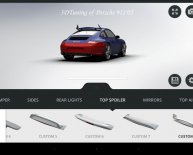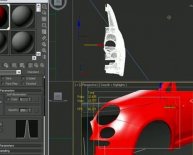
Car Modifying
- Sound systems
- Suspension
- Personal number plates
- Alloy wheels
- Spoilers
- Tinted windows
Why is insurance affected by modifications?
Generally, most of the performance and aesthetic modifications will increase the cost of your car insurance premium. Other changes such as those made to improve safety, eg. parking sensors, won’t affect premiums and could help you avoid accidents which, over time can reduce your premiums.
When you apply for car insurance, companies will assess a number of things about your vehicle.
The three main areas of assessment are: risk of accident, risk of theft and value of your vehicle.
Below you can see why certain modifications will affect the amount you pay.
- Risk of accident – Some car modifications improve performance and in turn, increase the risk of having an accident. Because of this, insurers will increase premiums.
- Risk of theft – Some modifications are high in value, for example, sound systems and satellite navigation systems. Having these valuable modifications in your car will increase the risk of theft, again, increasing your premium.
- Value of vehicle – Most modifications you make to a vehicle are not cheap to make, and due to this, the overall value of the car will increase. Insurers tend to charge more to insure vehicles which will cost more to replace or repair if they were to be in an accident.
How is car insurance affected by modifications?
Below is a list of common car modifications and the average increase/decrease in premium price due to each modification.
Engine and mechanics
– Turbo/Supercharging 91% increase
– Transmission/Gear change 45% increase
– Exhaust changes 3% increase
Bodywork
– Wheel arches 41% increase
– Complete body kit 26% increase
– Spoilers 7% increase
– Light changes 6% increase
– Tinted windows 1% increase
Interior
– Replacement of seats 16% increase
– Replacement of steering wheel 16% increase
– Dashboard changes 3% increase
Brakes and suspension
– Uprated brakes 15% increase
– Suspension 2% increase
Paintwork
– Specialised paintwork 15% increase
– Stripes and badges 9% increase
Wheels
– Alloy wheels 1% increase
Fuel economy
– LPG conversion no change
Driver aids
– Satellite navigation system 13% increase
– Car phone kit 12% increase
– Parking sensors 13% decrease
Source: www.moneysupermarket.com
Notifying your insurance company
When searching for car insurance you must always inform your insurers of any modifications made to your vehicle. Even if you purchased the car with these changes. Failure to do so may result in your policy not paying out.
If you already have a policy in place and decide to make changes to your car, you must let your insurance company know as soon as you do so. Do not wait until it is time to renew, as again, your policy could be invalidated.
Illegal Modification
It is worth noting that not all car modifications are legal. Making illegal changes to your car may result in you being prosecuted, as well as your car insurance policy being invalidated.
You should always seek expert advice before modifying your car to avoid being caught out.
Some examples of illegal car modifications are:
Tinted windows – Car windscreen must let in 75% light and front side windows must let in 70%.
Number plates – You are permitted to have a personalised number plate, however you must adhere to the law. For example, you must use the correct font and spacing.
Why car modifications may not be the best idea…
As well as the risk of increased car insurance premiums, modifying your car can cause a lot of other detrimental effects. We’ve listed a few of them below just so you’re aware of some of the potential issues you could run into:
Fuel economy
Sports exhaust have the same effect. You may get heads turning with that loud exhaust while you cruise about town, but the overall performance of the car will be affected.
Handling
Your bigger wheels can also have an impact on how well your car manages on the road – which is a cause for concern when you factor in the notoriously poor state of many roads in the UK.
Many modified wheels are also fitted with low profile tyres, which means they are a lot more likely to suffer punctures.
Noise and emission guidelines
You know that part of your MOT test that deals with the noise and emissions output of your car? Well, modified cars could lead to you failing that part of the test due to producing too much noise and exceeding the emissions levels.
How to tell if a car has been modified
With many modified cars, it is obvious that they have been ‘upgraded’ by the owner (the huge exhausts, shiny rims and massive spoilers can be a giveaway). However, it’s not always that easy to spot – so if you are thinking about buying a second-hand car here’s a few tips to help you spot any modifications:
Ask the owner – an obvious tip, but you may not always get an honest answer
Common car mods to look out for/ask about are:
- Bigger wheels
- Adjusted suspension
- Sports exhausts
- Upgraded stereo systems
If you suspect that any of the above are not ‘factory-fitted’, and you are not convinced by the current car owners insistence that they are, then refer to the vehicles specifications (which can easily be found online). Parkers is always a good place to start: www.parkers.co.uk/cars/reviews/facts-and-figures
Get a car insurance quote
If you are looking for a new car insurance policy, let Bobatoo.co.uk help you compare cover from leading insurance companies quickly and easily. By accessing over 70 of the leading UK car insurance brands, you can get the right cover for the right price for you. Visit our car insurance deals page now to get started, or go straight to getting a car insurance quote here:

















